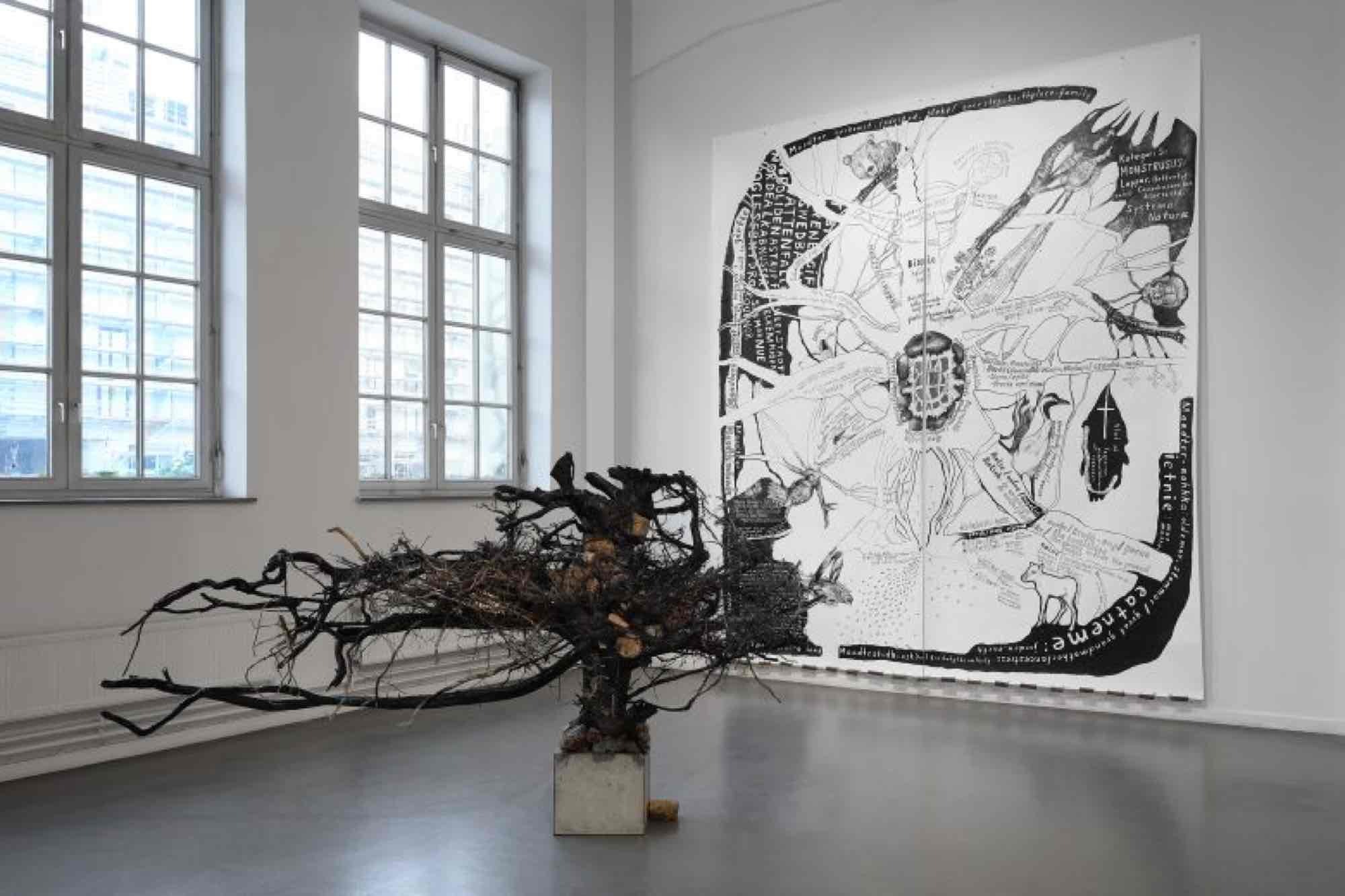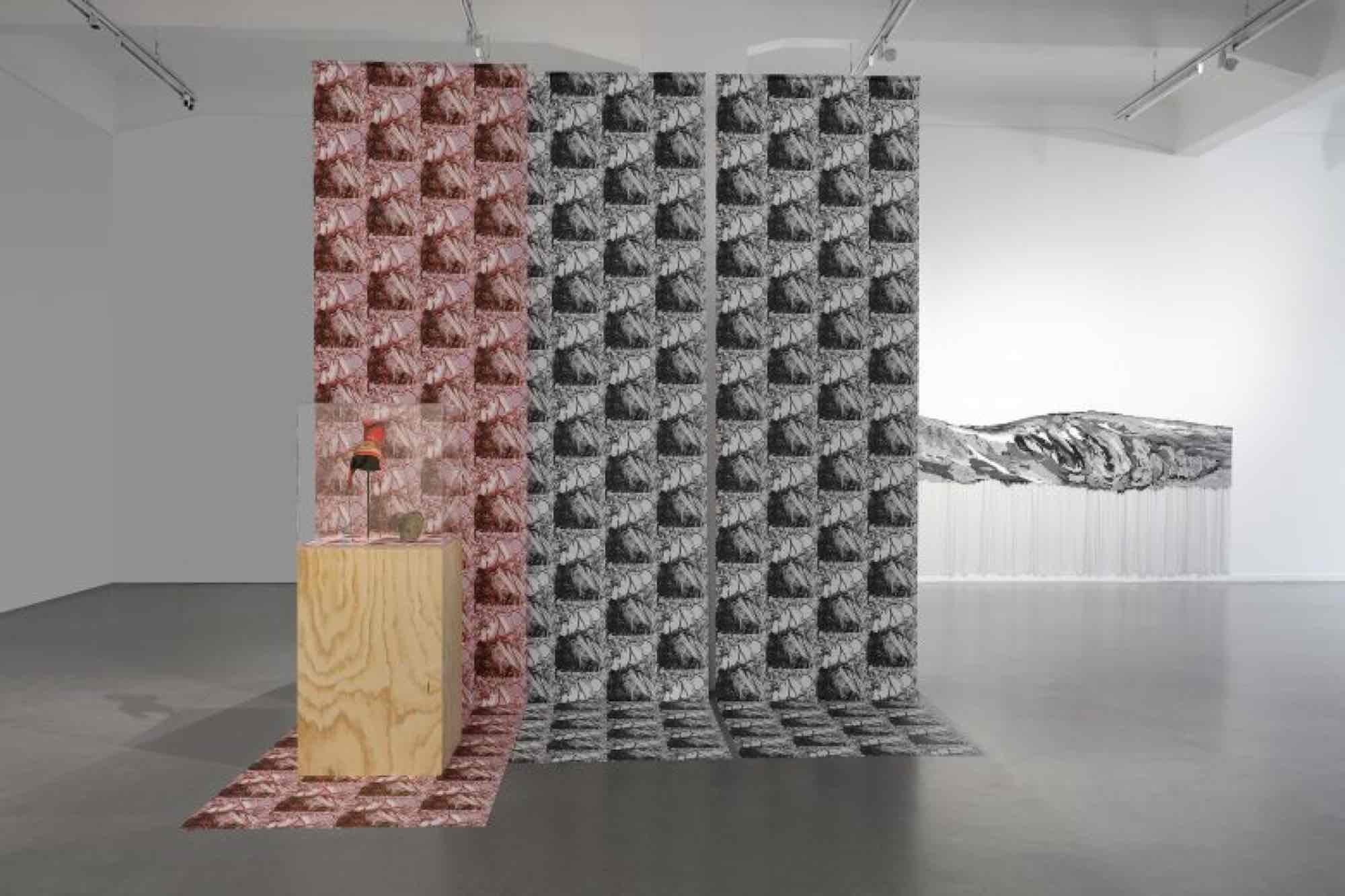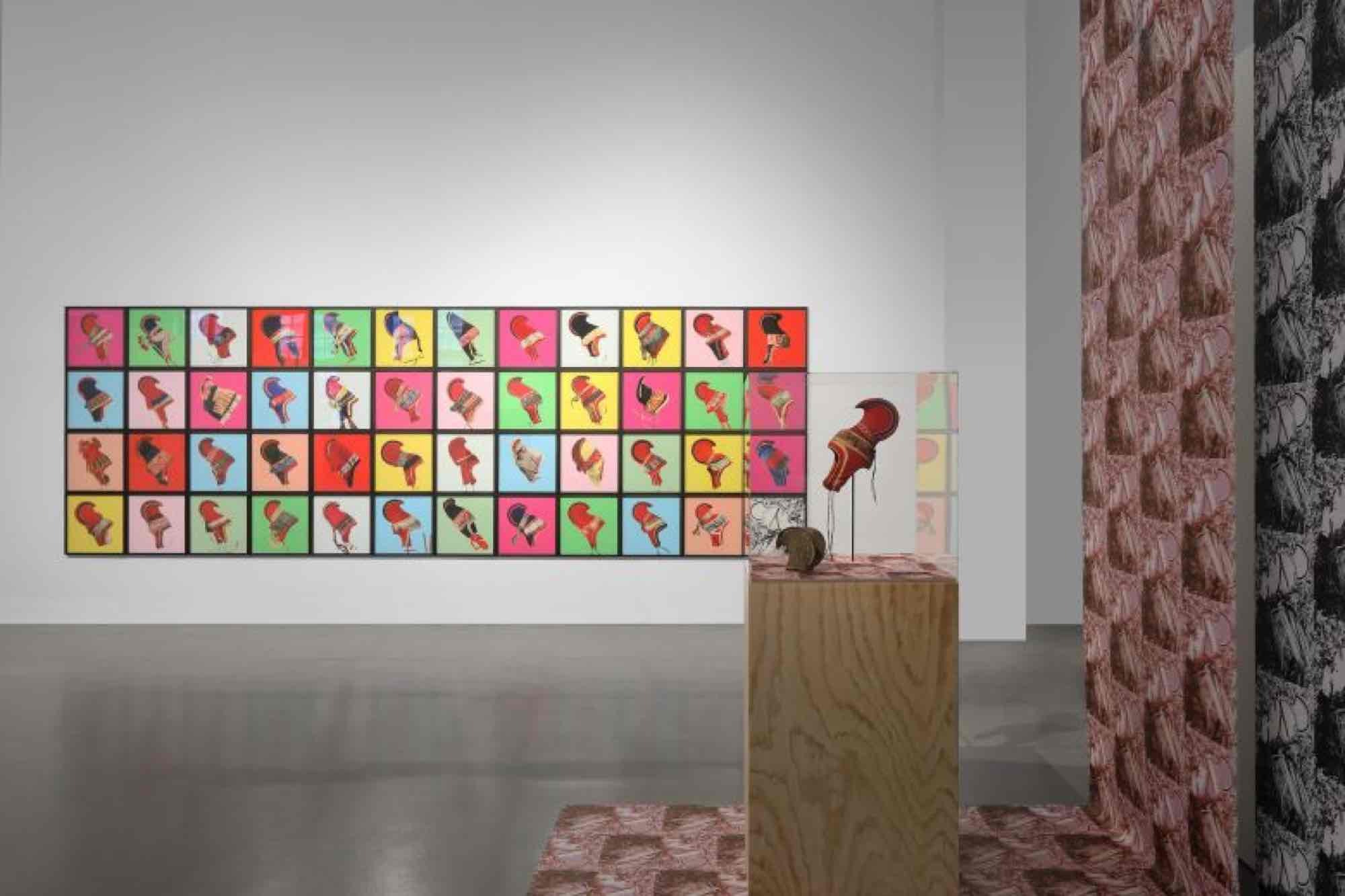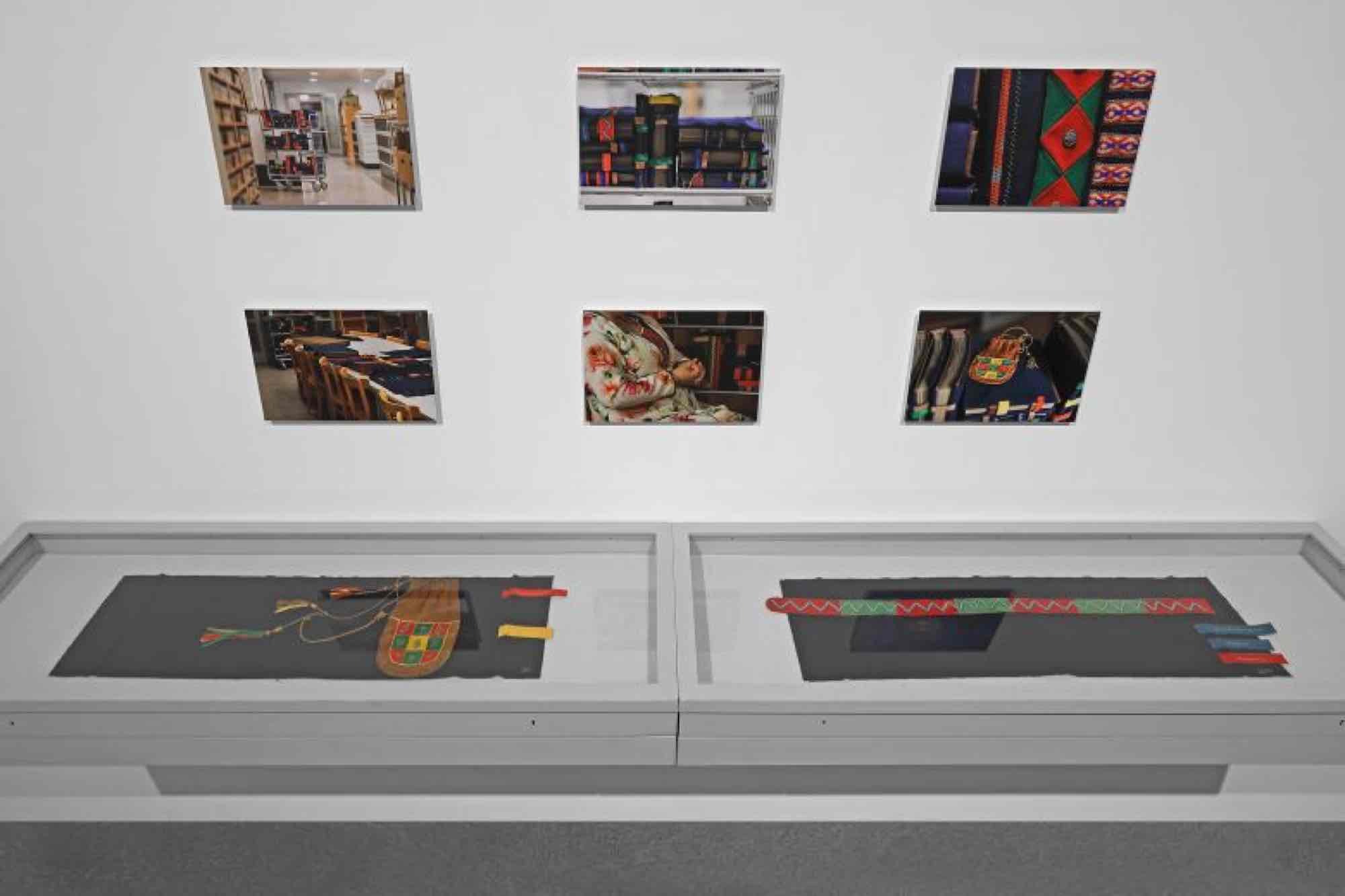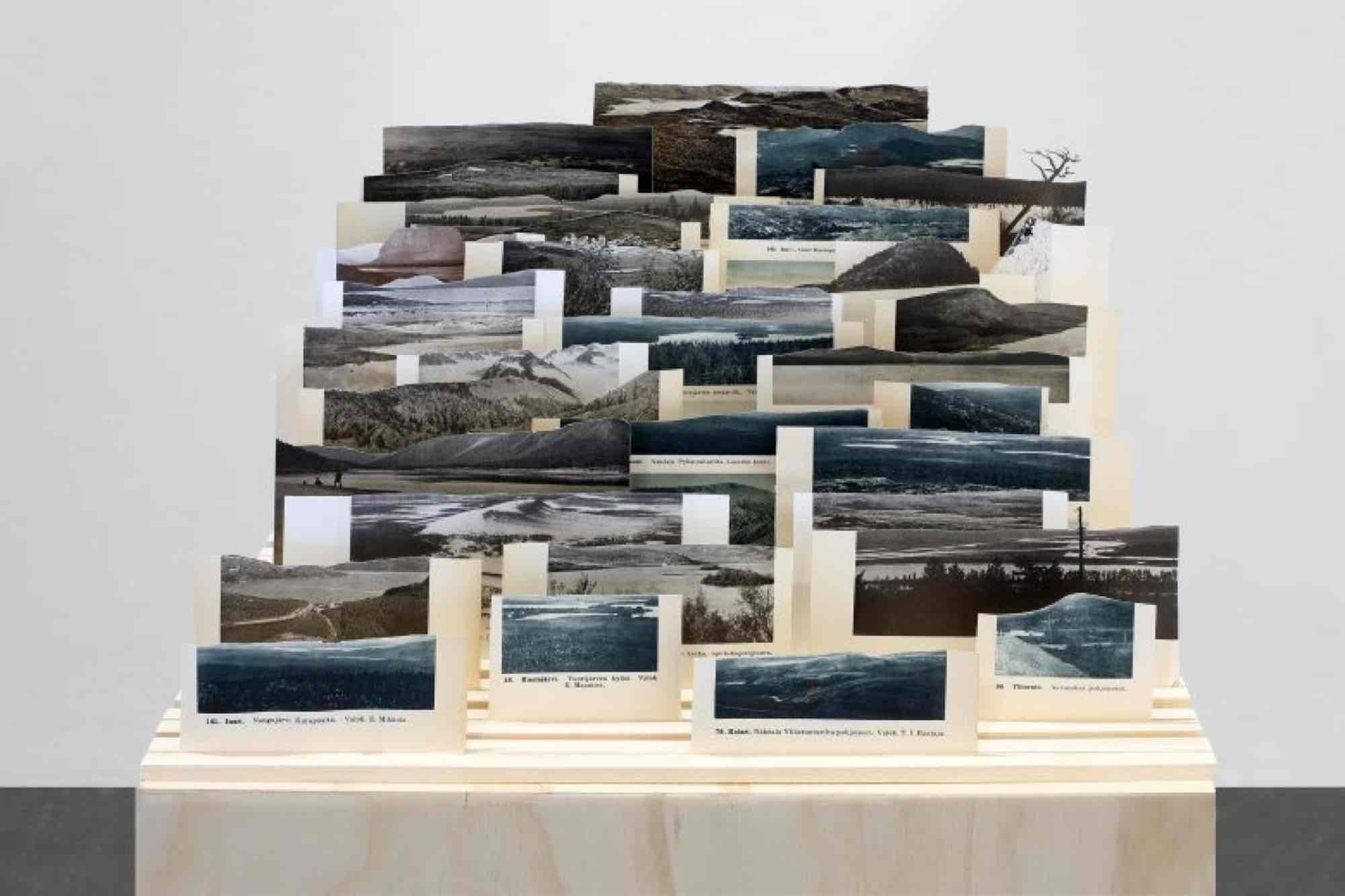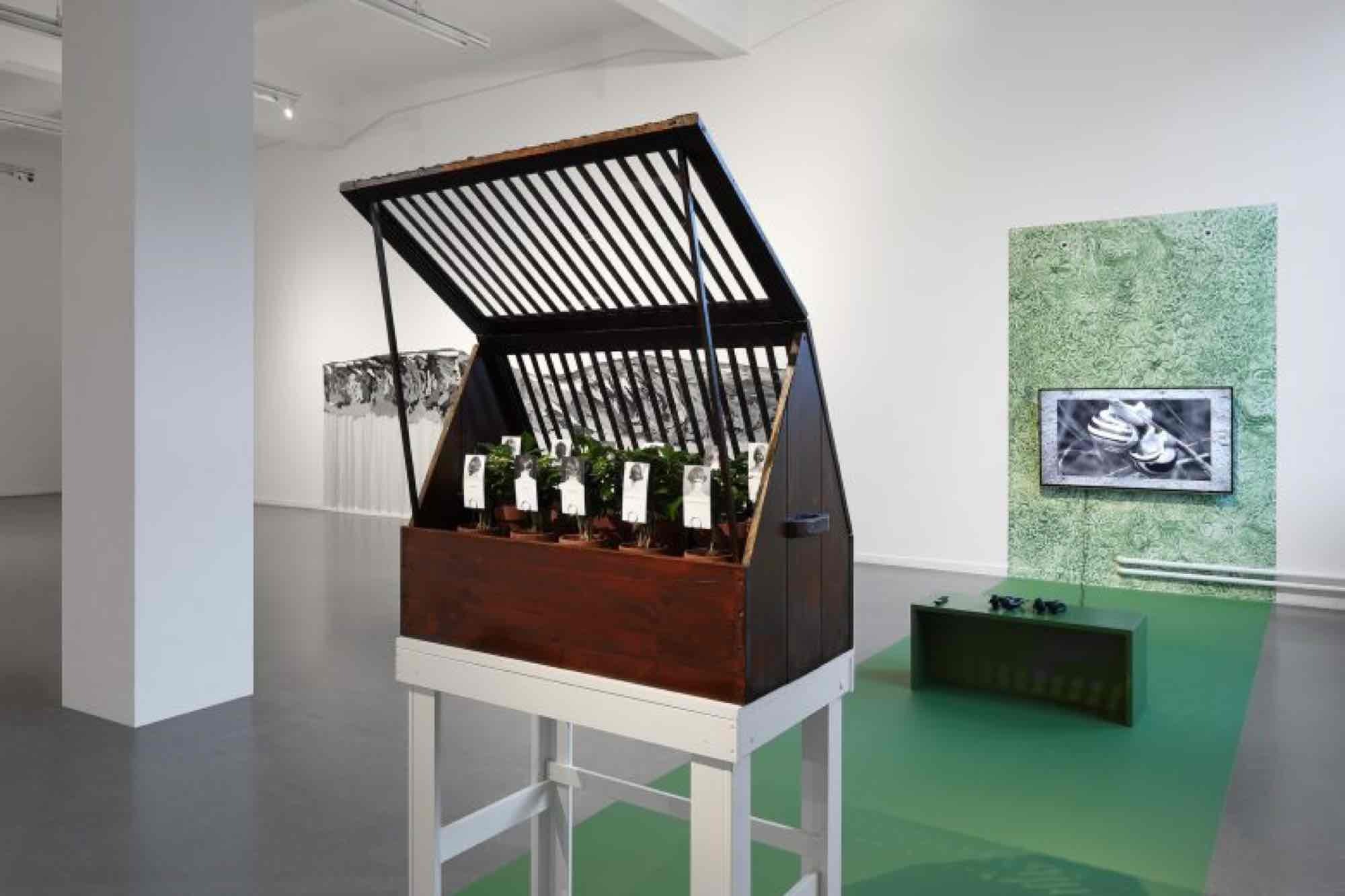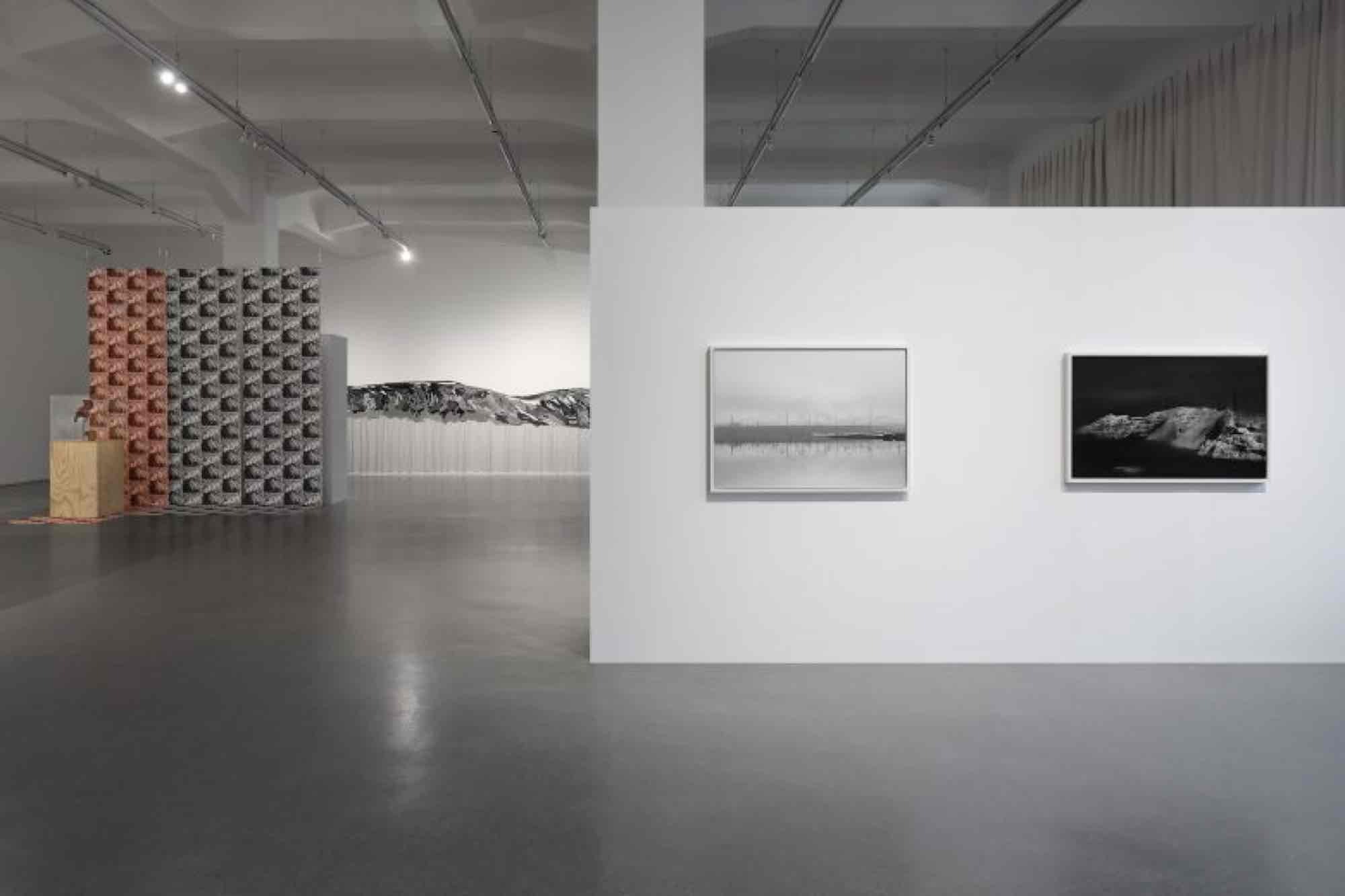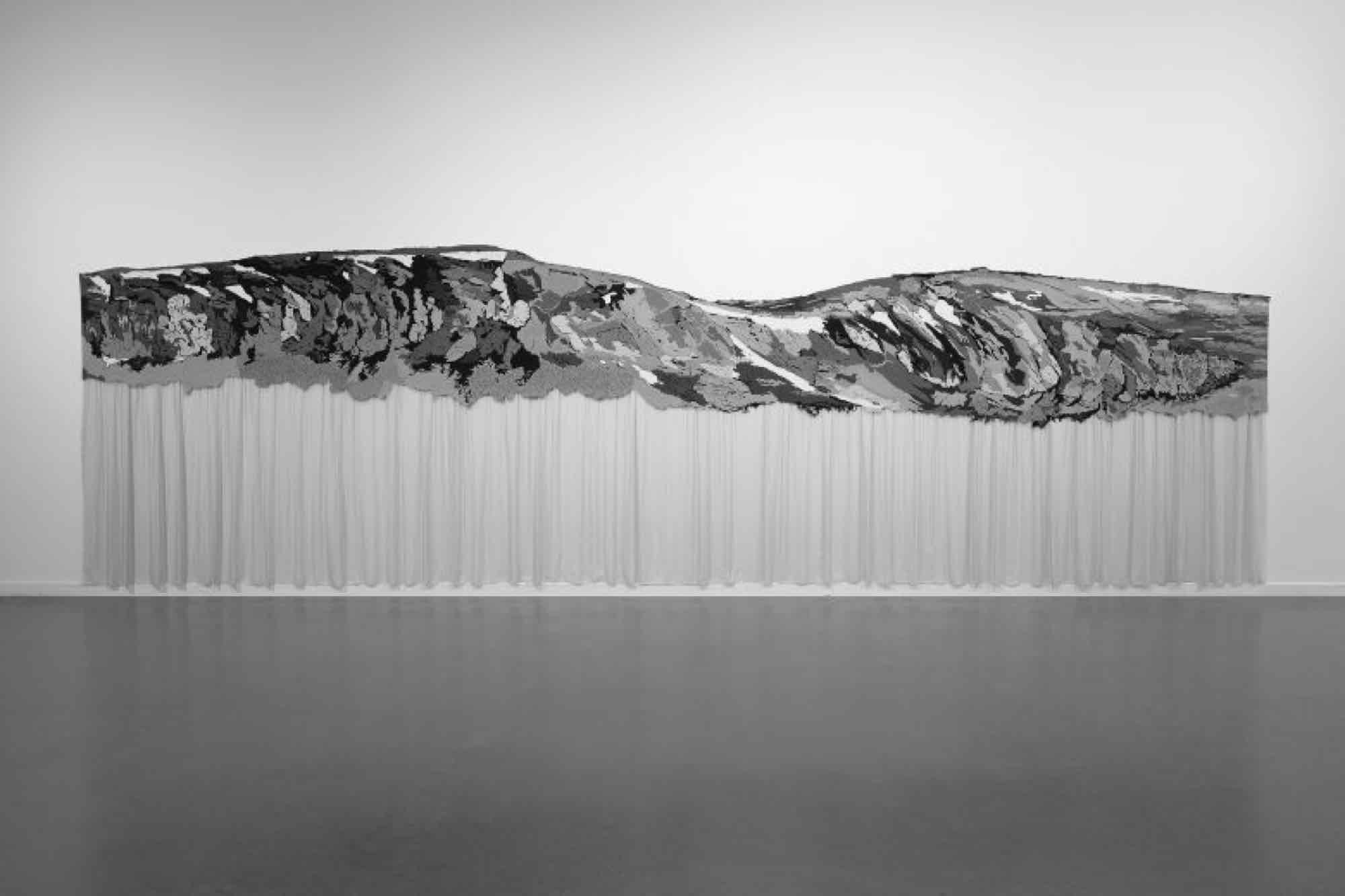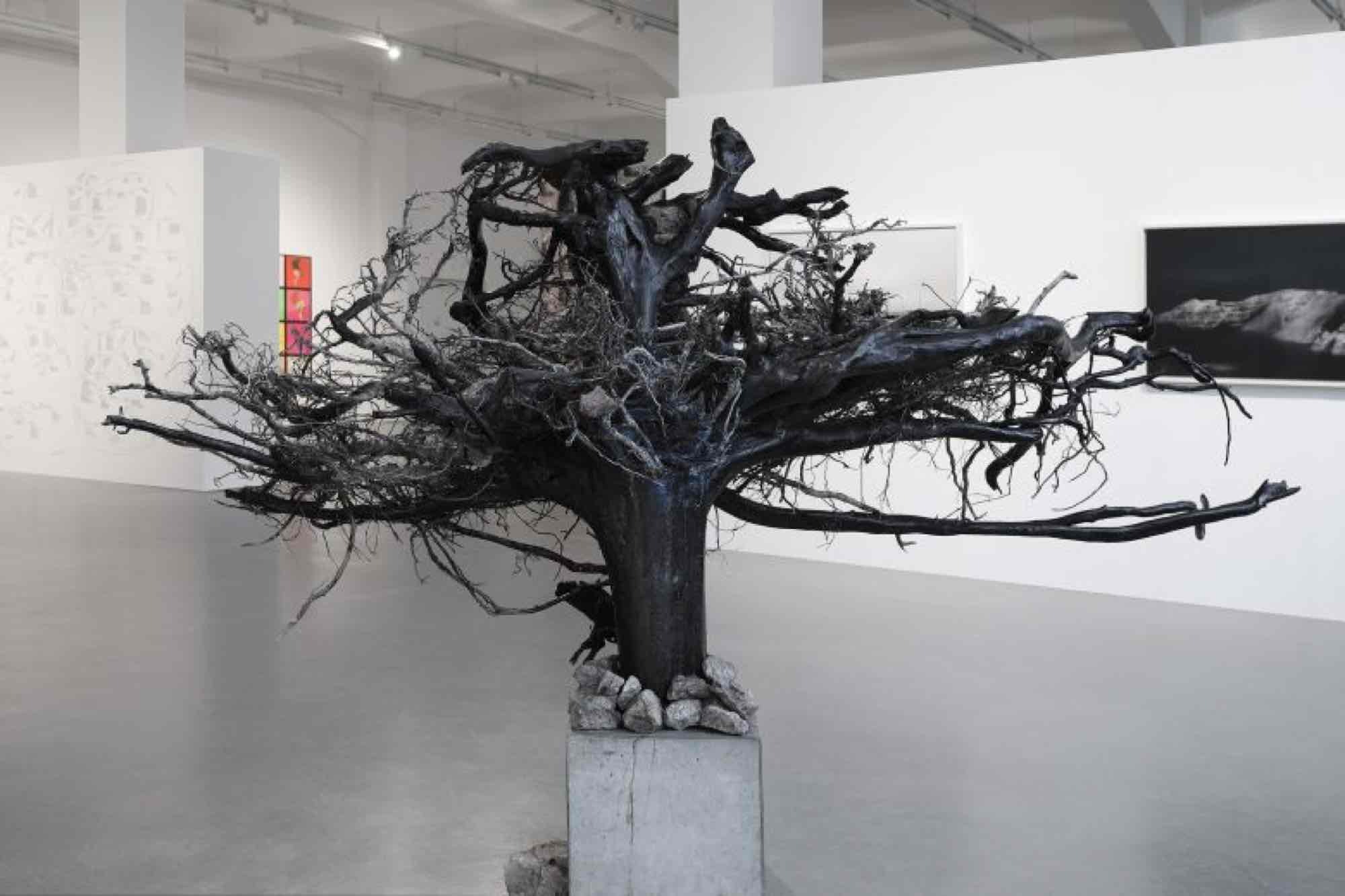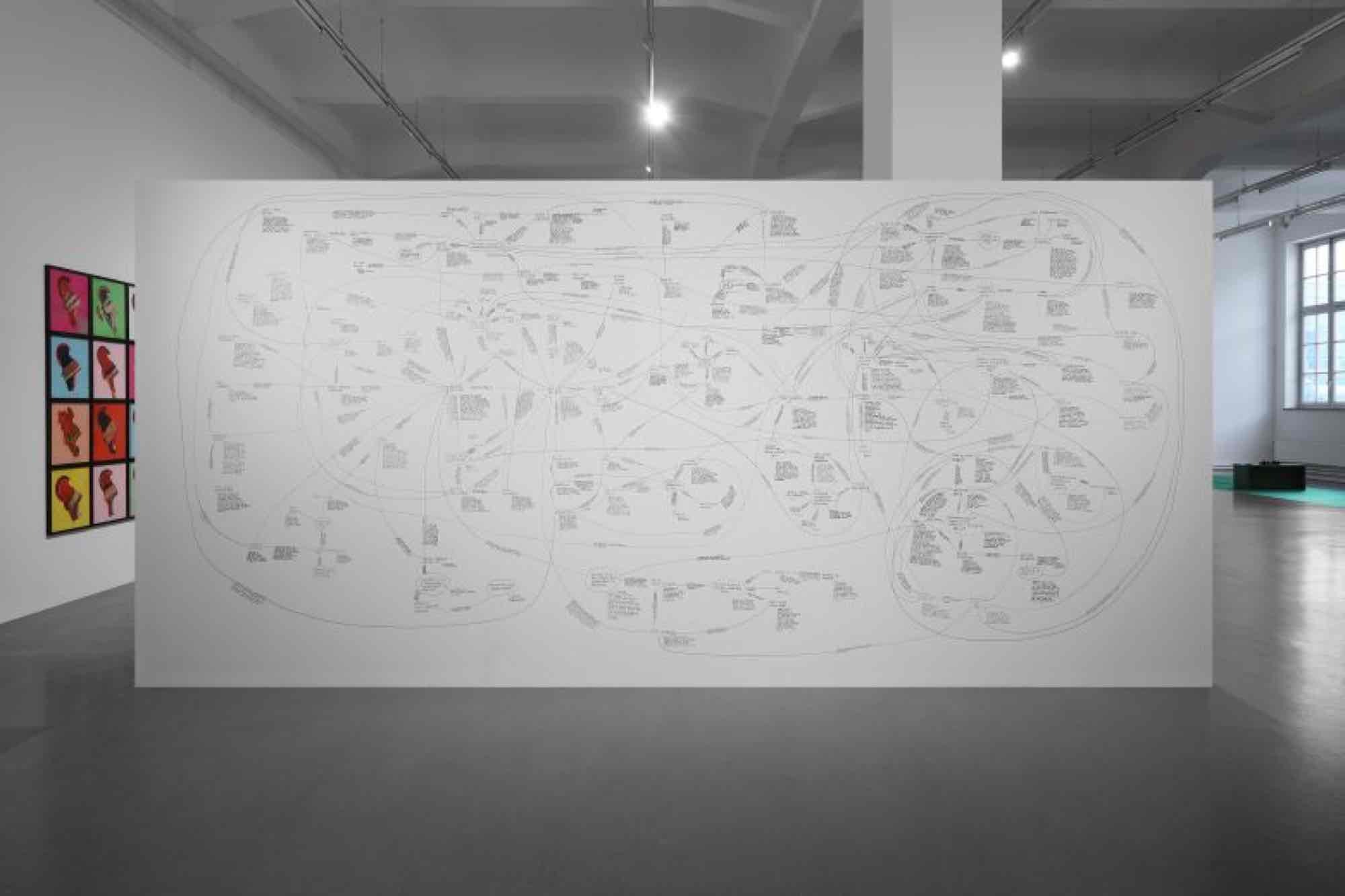Speaking Back
03 Jun - 01 Oct 2023
With the artists Sissel M. Bergh, Annika Dahlsten & Markku Laakso, Marja Helander, Minna Henriksson, Hannimari Jokinen, Marjo Levlin, Britta Marakatt-Labba, Katarina Pirak Sikku, Hilde Skancke Pedersen, Outi Pieski
Curators: Áile Aikio, Hannimari Jokinen and Katja Schroeder. The exhibition at MARKK is curated in close collaboration by Dr. Anna Sophie Laug.
SPEAKING BACK is an art and research project that reflects upon colonialism in Europe’s North and its past and present entanglements with Germany. In the ongoing decolonization processes of German museums and other memory institutions, the Nordic colonialism and its devastating impacts on the Sámi and other minorities has not yet received enough attention. With art and scholarly perspectives, the project SPEAKING BACK focuses on this complex and ethically sensible field. SPEAKING BACK calls attention to the white supremacy ideology and racist structures that even today bias people’s minds and attitudes.
„Race theories“ along with the Nordic “welfare states” created both segregation of minorities and forced assimilation politics, such as adapting the language, knowledge and values of the majority society. Especially for the Sámi this has meant undermining of land rights and deprivation of livelihoods. In boarding schools, Sámi children were forcibly separated from their families and culture. Simultaneously, adventurers, collectors and scholars plundered Sámi cultural heritage for European museums. Even though the Sámi have achieved improvement for their position and situation in many ways, the fundamental question of self-determination is not yet solved. Still today, the Sámi human and land rights are violated as the Nordic nation states give concessions to mining companies that irreversibly devastate ecosystems and Sámi livelihoods.
In the exhibition SPEAKING BACK, Sámi and non-Sámi artists will critically review the Nordic colonial heritage and its linkages to German museums and colonial history in general. Even more, the exhibition gives space for a critical and responsible debate on decolonial agency and strategies of resistance.
As part of the project, a group of artists and researchers have conducted research in German, Finnish, Norwegian and Swedish archives and museums. The sculptures, video installations, textile art, photography and drawings in the exhibition review historical and contemporary colonial gaze, looting, eviction and commodification of nature in a Nordic framework. The art works change perspectives, elaborate and visualize resilient strategies and agency.
From September on, the exhibition at Kunsthaus Hamburg will be followed by a second exhibition at Museum am Rothenbaum – Kulturen und Künste der Welt (MARKK). The museum hosts one of the largest collections of Sámi artefacts in Germany and is an important reference point for the project. Besides such objects in museums, anthropological collections in Germany even today claim ownership over Sámi and Finnish human remains. Furthermore, vestiges of Hamburg’s colonial past can be found in Tierpark Hagenbeck where the animal trader and zoo director Carl Hagenbeck organized his racist „Völkerschauen“ („human zoos“) from the late 19th century to 1930’s. Besides the many non-European peoples who had to perform prescripted activities in such demeaning, derogatory and dehumanizing shows, the very first group to be exhibited in Hamburg, was from Sápmi.
The exhibition SPEAKING BACK gives space for a critical and responsible debate on Germany’s colonial heritage. Even more, decolonial strategies of resistance and agency will be presented. An extensive accompanying program provides the opportunity for critical debate in context.
Curators: Áile Aikio, Hannimari Jokinen and Katja Schroeder. The exhibition at MARKK is curated in close collaboration by Dr. Anna Sophie Laug.
SPEAKING BACK is an art and research project that reflects upon colonialism in Europe’s North and its past and present entanglements with Germany. In the ongoing decolonization processes of German museums and other memory institutions, the Nordic colonialism and its devastating impacts on the Sámi and other minorities has not yet received enough attention. With art and scholarly perspectives, the project SPEAKING BACK focuses on this complex and ethically sensible field. SPEAKING BACK calls attention to the white supremacy ideology and racist structures that even today bias people’s minds and attitudes.
„Race theories“ along with the Nordic “welfare states” created both segregation of minorities and forced assimilation politics, such as adapting the language, knowledge and values of the majority society. Especially for the Sámi this has meant undermining of land rights and deprivation of livelihoods. In boarding schools, Sámi children were forcibly separated from their families and culture. Simultaneously, adventurers, collectors and scholars plundered Sámi cultural heritage for European museums. Even though the Sámi have achieved improvement for their position and situation in many ways, the fundamental question of self-determination is not yet solved. Still today, the Sámi human and land rights are violated as the Nordic nation states give concessions to mining companies that irreversibly devastate ecosystems and Sámi livelihoods.
In the exhibition SPEAKING BACK, Sámi and non-Sámi artists will critically review the Nordic colonial heritage and its linkages to German museums and colonial history in general. Even more, the exhibition gives space for a critical and responsible debate on decolonial agency and strategies of resistance.
As part of the project, a group of artists and researchers have conducted research in German, Finnish, Norwegian and Swedish archives and museums. The sculptures, video installations, textile art, photography and drawings in the exhibition review historical and contemporary colonial gaze, looting, eviction and commodification of nature in a Nordic framework. The art works change perspectives, elaborate and visualize resilient strategies and agency.
From September on, the exhibition at Kunsthaus Hamburg will be followed by a second exhibition at Museum am Rothenbaum – Kulturen und Künste der Welt (MARKK). The museum hosts one of the largest collections of Sámi artefacts in Germany and is an important reference point for the project. Besides such objects in museums, anthropological collections in Germany even today claim ownership over Sámi and Finnish human remains. Furthermore, vestiges of Hamburg’s colonial past can be found in Tierpark Hagenbeck where the animal trader and zoo director Carl Hagenbeck organized his racist „Völkerschauen“ („human zoos“) from the late 19th century to 1930’s. Besides the many non-European peoples who had to perform prescripted activities in such demeaning, derogatory and dehumanizing shows, the very first group to be exhibited in Hamburg, was from Sápmi.
The exhibition SPEAKING BACK gives space for a critical and responsible debate on Germany’s colonial heritage. Even more, decolonial strategies of resistance and agency will be presented. An extensive accompanying program provides the opportunity for critical debate in context.

